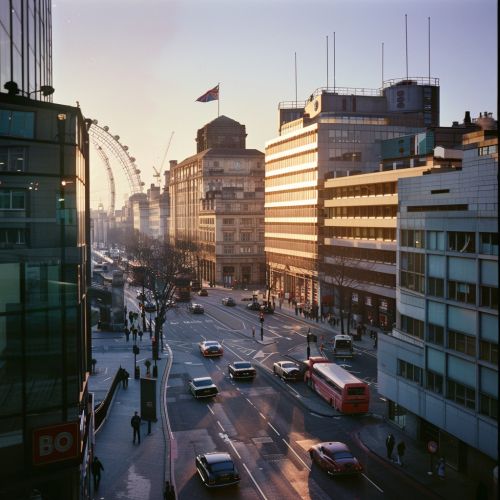BBC
History
The BBC was established on 18 October 1922 as a private company, the British Broadcasting Company Ltd, by various wireless manufacturers including Marconi. The company was to provide a national broadcasting service, using a network of transmitters to relay programmes across the country. The company became the British Broadcasting Corporation in 1927 when it was granted a Royal Charter and became a publicly funded corporation.

Governance and corporate structure
The BBC operates under a Royal Charter, which allows it to operate independently from the government, but with certain obligations and responsibilities. The Charter sets out the public purposes of the BBC, guarantees its independence, and outlines the duties of the Trust and the Executive Board.
The BBC Trust is the governing body of the BBC, responsible for representing the interests of licence fee payers. It sets the strategic direction of the BBC, and appoints the Director-General. The Executive Board is responsible for the day-to-day operations of the BBC.
Services
The BBC provides a wide range of services, including television, radio, online, and interactive services. These services are funded by the licence fee, which is set by the government.
Television
The BBC operates several television channels, including BBC One, BBC Two, and BBC Four. These channels broadcast a variety of programmes, including news, drama, documentaries, and entertainment shows.
Radio
The BBC's radio services include national stations such as BBC Radio 1, BBC Radio 2, BBC Radio 3, and BBC Radio 4. It also operates local radio stations across the UK, and international services through the BBC World Service.
Online
The BBC's online services include the BBC iPlayer, which allows viewers to watch BBC programmes on demand, and the BBC News Online website, one of the most visited news websites in the world.
Funding
The BBC is primarily funded by the licence fee, which is paid by all UK households, companies, and organisations using any type of equipment to receive or record live television broadcasts. The level of the licence fee is set by the UK government and agreed by Parliament.
In addition to the licence fee, the BBC also generates income from the commercial exploitation of its programming through its commercial arm, BBC Studios.
Criticism and controversy
The BBC has faced criticism and controversy over the years, including accusations of political bias, lack of impartiality, and poor management. However, it has also been praised for its high-quality programming, its commitment to public service broadcasting, and its contribution to the cultural life of the UK.
